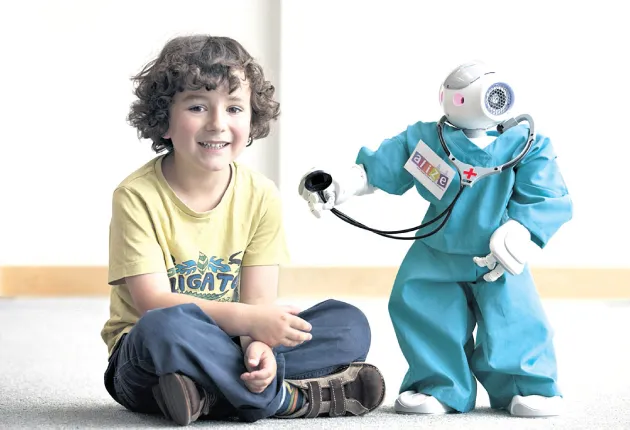The use of robots has begun to make children with diabetes accept their illness and have more confidence in their future, reveals a study presented to the European Community.
As part of a project called Aliz-E, scientists followed the behavior of hundreds of children with diabetes who interacted with the robot in hospitals, camps and specialized care centers.
Tony Belpaeme, professor of cognitive and robotic systems at Plymouth University and holder of the project, said that for work they dressed as doctors a series of Nao robots, 60 centimeters high.
During the four and a half years that the project lasted, they carried out activities with children between 7 and 11 years of age in several nations in Europe.
"What we review is how the teams hook children and the reasons for their activities," said Belpaeme.
After the study they found that children with diabetes who interacted with doctors Robots showed more confidence about the future.
The robots asked the children to carry a diary where they would write down the food they consumed, the insulin injections they received and the measurements of their sugar levels.Robots helped children through puzzles and games to understand more about diabetes and process the information they generated.
Now specialists believe that robots could have a similar effect on small with other medical conditions, such as autism.


